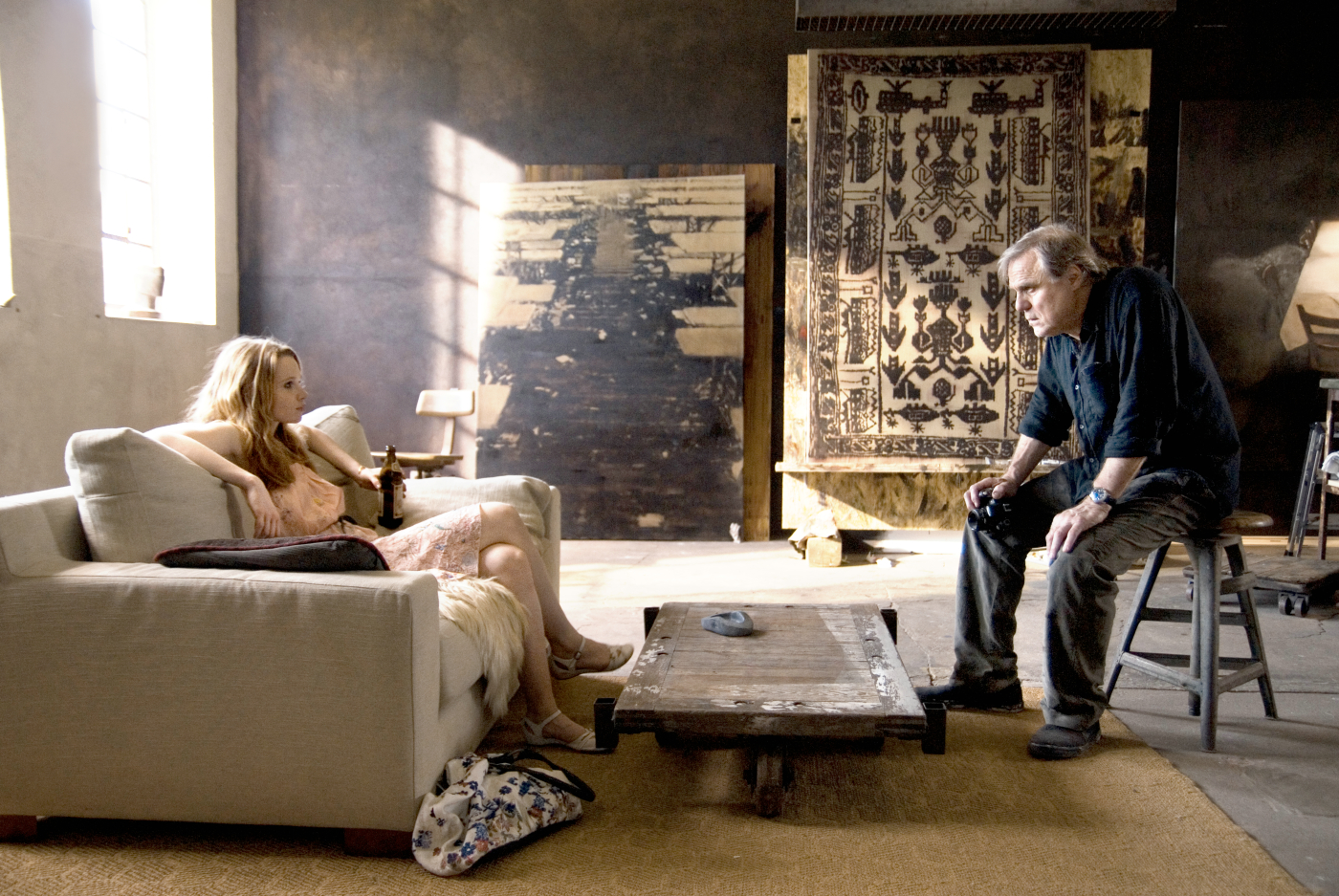Goethe-Institut showcases German film history in new film series
The Goethe-Institut’s new film series aims to enable the audiences to capture the essence of German cinema.
From July 29 to September 23, the Makati-based cultural institute will screen nine films produced at various points in time of German cinema history.
Serving as anchor to the nine-part film cycle is the documentary Auge in Auge (“Eye to Eye”) by Michael Althen and Hans Helmut Prinzler. It explores the essence of German film through interviews with filmmakers.
The rest of the films included in the series are the ones tackled by the filmmakers in the documentary
The screenings will start at 6 p.m. at the Adamson Center, 121 L. P. Leviste St., Salcedo Village, Makati city. Admission is free and open to the public.
The Goethe-Institut Manila German Cultural Center can be contacted through the following numbers and e-mail address (632) 840 5723, (632) 817 0979, [email protected]. Vearyda Oeu, INQUIRER.net trainee/KS
Below are synopses of the films and the schedules:
Eye to Eye | Auge in Auge (July 29)
Director: Michael Althen, Hans Helmut Prinzler, color, 99 min., 2007/08
A film about the love for cinema, a voyage of discovery through one hundred years of German film, which shows us that all which seems so far away, is, in reality, so close. EYE TO EYE shows the great moments of German cinema history. Unforgettable images are passing before our eyes and make us feel like watching the classics again. Acclaimed German filmmakers such as Caroline Link, Doris Dörrie, Michael Ballhaus, Tom Tykwer, Wim Wenders, Dominik Graf, Christian Petzold, Andreas Dresen, Wolfgang Kohlhaase and Hanns Zischler, use film extracts to illustrate us the films that have been particularly important to them; they investigate the essence of German film. Layer by layer, the film uncovers what so often has obscured our view of German film history. EYE TO EYE – an homage to what we love about German cinema.
A Year Ago in Winter | Im Winter ein Jahr | (August 5)
Director: Caroline Link, color, 128 min., 2008
Interior designer Eliane Richter commissions Max Hollander to paint a picture of her two children. Her daughter Lilli is not keen on the idea, because her brother Alexander committed suicide and the portrait of the two would be nothing more than a decorative illusion. The project changes everyone directly and indirectly involved with the painting.
Yesterday Girl | Abschied von gestern (August 12)
Director: Alexander Kluge, b&w, 88 Min., 1966
Anita G., a jew, comes to the West from “the other side”. With a suitcase in hand, she meets strangers with whom she discovers an unknown land: West Germany of 1966. Having been raised in the East, Anita embodies the unresolved issues of her divided country’s past and struggles to integrate in the West German society. The film goes through the obstacles she faces in her daily life with scenes of almost documentary value.
Martha (August 19)
Director: Rainer Werner Fassbinder, color, 116 min., 1974
The story of a less than ordinary marriage. After her father dies, Martha flies the parental nest and gets married, replacing one type of dependency with another until she finally becomes completely helpless when an accident confines her to a wheelchair – a situation which, in an intriguingly ambivalent way, she seems to relish.
The Marriage of Maria Braun | Die Ehe der Maria Braun (August 26)
Director: Rainer Werner Fassbinder, color, 120 min., 1978
The story takes place in Germany during reconstruction after World War II. Maria Braun manages to climb the social ladder but must pay an excessive price for her professional success. The first film in Fassbinder’s eclectic and critical FRG trilogy ends fatally, just as Germany wins the 1954 World Cup.
Ghosts | Gespenster (September 2)
Director: Christian Petzold, color, 85 min., 2005
It’s a film about insecurity, loneliness, loss and longing. A woman drives to Berlin every year. She is desperately searching for her daughter. In 1989 the daughter was three years old and got kidnapped. And she is still lost. Now the woman meets a girl. Nina. She’s a drifter, wanderer. A homeless young woman. She wanders about with someone called Toni. Someone who just takes the world. A thief. The woman believes that she found her daughter: Nina.
Under the Bridges | Unter den Brücken (September 9)
Director: Helmut Käutner, b&w, 99 min., 1946
Summer, somewhere on the river Spree. Willy and Hendrik, the owner and sole crewman on a river towing barge have tied up for the night. They see a pretty girl leaning far over the parapet of a bridge, apparently intending to throw herself into the water. Suddenly a banknote floats down onto the river – the girl had merely wanted to get rid of a note associated with unpleasant memories.
Whisky with Vodka | Whisky mit Wodka (September 16)
Director: Andreas Dresen, color, 104 min., 2007/08
When ageing actor Otto Killberg has a few too many and misses a day of shooting, his producer double-casts his role. The rivalry between Otto and his replacement Arno Runge results in a web of intrigue on set, entangling more than just the two actors.
Solo Sunny (September 23)
Director: Konrad Wolf, color, 104 min., 1978
The GDR, at the end of the 70s: Ingrid Sommer, a woman working in a factory, tries to launch a singing career under the name “Sunny”. The young woman travels around with the band “Tornados” and plays some small gigs in cultural centres around the province. Her life is anything but “sunny” though, even when her love for the philosopher Ralph does promise some light and warmth at times. A story balancing between sadness and hope, and, retrospectively, a wonderfully precise and authentic film about life in the GDR.















